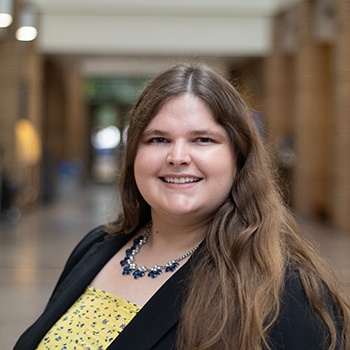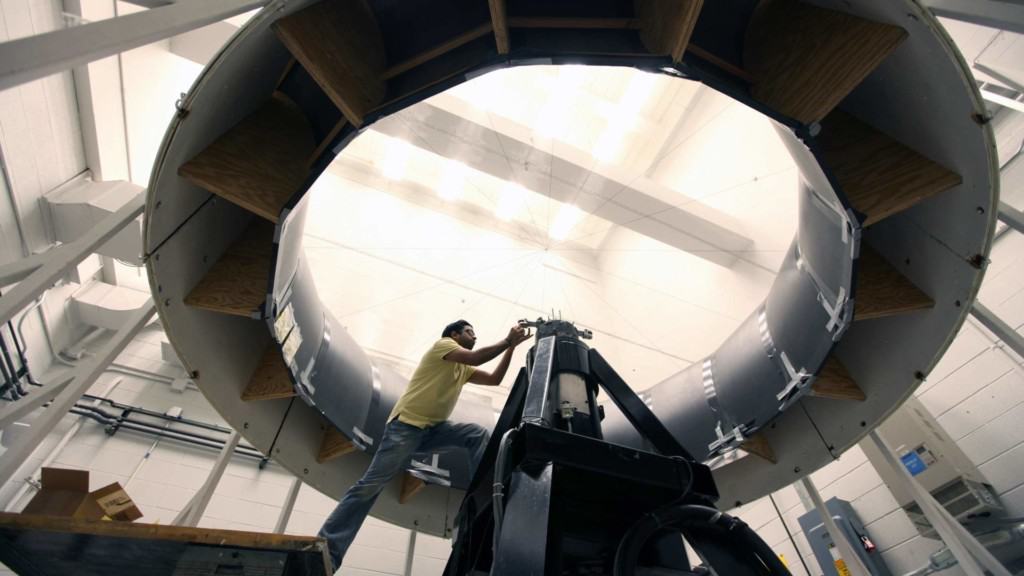
Advising
General Advising Tips
- Come see us at least once a semester
- Learn your degree requirements
- Use your program schedule
- Understand your degree audit
- Be aware of deadlines such as the Add/Drop, Pass/Fail, and Withdrawing
Aero Program Sample Schedules
Students should use the aero program schedule to keep track of progress toward graduation. Most aero courses are offered every semester which gives flexibility for students to plan their schedule according to their needs. See below:
- A generic aero program schedule is available here
The Academic Services Office (ASO) serves Undergraduate and Graduate students within the Aerospace department and is located on the second floor of the Francois-Xavier Bagnoud Building (FXB).
Meet With An Advisor
Our team offers a variety of ways to connect with us throughout the year between events, drop in advising, and scheduled appointments.
Undergraduate students: Schedule an appointment.
Peer Advisors
Schedule an appointment with a current undergraduate student who can share advice and guidance on navigating your academic pursuits (learn more about each advisor below).
Schedule an Appointment with Abhi
Schedule an Appointment with Isadora
Schedule an Appointment with Russell
If you are a graduate student, please visit the Aerospace Graduate Student page for advising information.
If you would like to discuss a potential exception to your degree requirements or declare Aerospace Engineering as your major, please email us at aero-front-desk@umich.edu or call (734) 764-3350.

Undergraduate Program Advisor
Professor Krzysztof Fidkowski
3048 FXB
kfid@umich.edu
(734) 615-7247

ACADEMIC ADVISOR
Peer Advisors

Abhi Athreya
Senior, Aerospace Engineering
I’ve had an interesting journey at Michigan so far. I started as a BBA & Aerospace Dual-Degree and eventually realized I wanted to focus on my Aerospace education, switching into the Ross minor.
I’ve also had the chance to study abroad in my junior winter semester in Paris, FR and currently work as an advisor for the International Programs in Engineering (IPE) Office, so I’m happy to help you navigate study abroad opportunities!
Previously, I’ve summered at Robert Bosch as a Radar Hardware Engineering Intern (S’22), PricewaterhouseCoopers as an Operations Transformations Management Consulting Summer Associate (S’23), and Alvarez & Marsal as a Restructuring & Turnaround Summer Analyst (S’24) – I’d love to guide you on your internship / job recruiting journey if that’s something you’re worried about!
Let’s help you succeed at Michigan Aerospace Engineering together!

Isadora Sotero
Junior, Aerospace Engineering
Hi! My name is Isadora Sotero, and I’m a junior studying Aerospace Engineering with a minor in Entrepreneurship. I’m passionate about helping my peers navigate their academic journey, whether it’s with classes, exploring minors, transferring credits, or preparing for internships and the recruiting process.
When I first joined U-M, I was between Mechanical and Aerospace Engineering but ultimately decided on Aerospace. I have also explored other minors and programs before deciding on the Entrepreneurship minor. Additionally, having completed courses outside of U-M, I can share tips and advice on transfer credits and navigating different programs.
This past summer, I interned at RTX, Pratt & Whitney as a Quality Engineering Intern (S’24), and I am returning there this upcoming summer. If you have questions about internships, recruiting, or other opportunities, I’d love to help!

Russell Clark
Senior, Aerospace Engineering
Hi, I’m Russell Clark, a senior majoring in Aerospace Engineering. My journey to this point has been anything but traditional, and I’m eager to share my experiences to help others succeed. After serving as a Marine stationed in San Diego, I transitioned into civilian life and pursued higher education, starting at Schoolcraft Community College before transferring here in Fall 2022.
I know firsthand how challenging it can be to navigate transfer credits, military benefits, and balancing life’s responsibilities as a non-traditional student. I’ve also worked part-time at Costco while attending school full-time, so I understand the challenges of managing a busy schedule.
If you’re looking for advice on transferring schools, leveraging military benefits, managing part-time work alongside a rigorous course load, or thriving as a non-traditional student, I’d love to help. Together, we can find solutions to overcome any obstacles in your academic journey.
Undergraduate Advising FAQ
Who is on my advising team, and what are their roles?
Your advising team is made up of four individuals:
- Advising Admin- Your first point of contact, and can help with many issues: how do I enroll in a class, can I get an override for a class, how do I apply to graduate, etc.
- Aerospace Undergraduate Advisor- Your Undergraduate advisor and can meet with you one-on-one to talk about academics- course registration, degree requirements, policies and procedures, and your future semester plans.
- Faculty Advisor- Your faculty advisor is assigned to you when you declare your major in Aero and is there to give you advice throughout your time within the department. Faculty advisors are great resources when it comes to developing and delving into your area(s) of interest and for career advice.
- Program Advisor- Krzysztof Fidkowski can answer questions about double-majors, scholastic standing issues, and utilizing an independent study course/project in your degree.
If you are dealing with physical or mental health issues, or are otherwise feeling like the semester is particularly difficult for you, please reach out to your Academic Advisor and the Program Advisor. They can often work with your professors and the College staff to help you get on track.
What is the Aero Related Core Subjects Requirement?
The idea behind the requirement is that there are other engineering disciplines that are useful for Aerospace graduates to be familiar with. We have designed the requirement to allow you an opportunity for breadth, or for depth (including pursuing a minor). The requirement is:
- All students must take ME 240, preferably during the sophomore year, and
- Students will then need to take two Engineering courses (at least at the 200 level) outside of the Aerospace department. Courses identified to be the most helpful to Aerospace students are: MSE 220, MSE 350; EECS 215, EECS 216; EECS 280, EECS 281
Some notes:
- Students who are undecided may want to take MSE 220 and EECS 215. This gives you a grounding in materials science, and electrical engineering.
What is the Aero Tech Electives Requirement?
- All students must take an advanced (300-level or higher) math or science course. The most useful courses for most aero students are linear algebra (Math 419), numerical methods (Math 371 or 471 or Aero 423), or statistics (Stats 412).
- Including the advanced math/science class, you must take at least 7 (old curriculum) or 9 (new curriculum) credits. Anything technical—which includes most math, science or engineering courses – at the 300 level or higher counts.
What counts as general electives?
Almost anything. If you have 128 or more credits toward program (CTP), you have automatically satisfied the general elective requirement.
Where can I find more information about Aero’s Sequential Undergraduate/Graduate Studies (SUGS) program?
Please visit our SUGS program page to learn more about the eligibility and application process.
What’s new with the Aero 205 requirement?
Starting in the fall, the specific requirement of Aero 205 is being replaced by a broader DBTF (design/build/test/fly) requirement. ENG 100-700, Aero 288, or any DBTF special project classes (e.g. Prof. Cutler’s cubesat course) will meet this requirement. Note that, if you use ENG 100-700 to meet the requirement, you will need to add 3 credits of tech electives.
Degree Audit
To access your degree audit follow this procedure:
Step 1. Log in Wolverine Access
Step 2. Click Students
Step 3. Click Student Business
Step 4. Click Student Center
Step 5. Click My Academics
Step 6. Click View my advisement report
Step 7. Click Checklist report pdf
Degree Requirements
An academic advisor can meet with you each semester to discuss course progression, ensure they are taking the proper coursework for degree completion. Click here to view degree requirements.
Peer Advising
Who we are: Sigma Gamma Tau (SGT) is the national honor society for Aerospace Engineering. Our main goal is to foster the education of aeronautics and astronautics. With the objective of reaching out to students at the University of Michigan, we make ourselves available to provide easy and accessible peer advising support.
How to get started: Simply click the link below to access our Peer Advising contact form. We will get in touch with you as soon as possible.
Contact SGT Francois Xavier Building 1320 Beal Ave. Ann Arbor, MI 48105 P: (734) 330 1510 F: (734) 330 1000 sgt-chairs@umich.edu
GET YOUR MASTER FASTER
The Rackham Sequential Undergraduate/Graduate Studies (SUGS) program allows current U-M students to complete an undergraduate and Master’s degree in five years.
